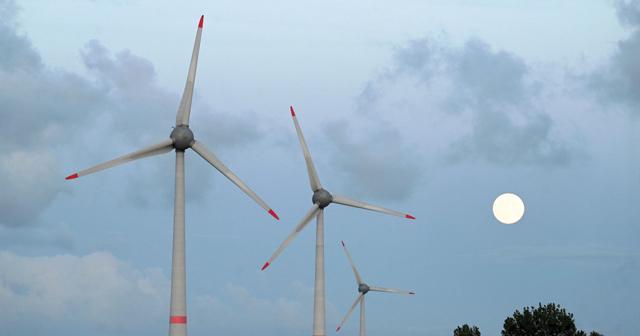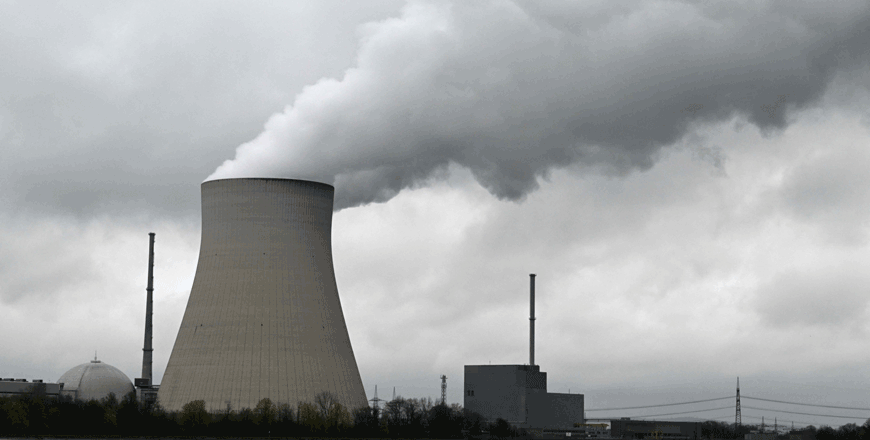You are here
German government moves to ramp up wind power
By AFP - Jun 15,2022 - Last updated at Jun 15,2022

This photo shows the moon rising behind wind turbines near the northern village of Neuharlingersiel, northern Germany, on Monday (AFP photo)
BERLIN — The German government approved a draft law on Wednesday aimed at covering two per cent of the country's land area with wind turbines by 2032, by setting fixed regional targets and easing some administrative burdens.
The push to accelerate the expansion of wind power comes as Germany is scrambling to wean itself off Russian fossil fuels following the war in Ukraine.
"Independence from fossil energies and from Russian fossil energies must be advanced at full speed," Energy Minister Robert Habeck told reporters.
The draft law adopted by Chancellor Olaf Scholz's cabinet still needs to be approved by parliament.
The goal is for Germany's 16 states to collectively dedicate two per cent of the nation's surface area to wind power generation by the end 2032 — up from 0.5 per cent, currently.
The installation of wind turbines regularly runs into "not in my backyard" resistance in Germany and objections from residents have often blocked such projects in the past, as have concerns about endangering local wildlife.
Habeck said the proposed legislation would take away some of the leeway that regional governments currently have, and force them to abide by fixed targets that vary according to a state's size and specific criteria such as wind conditions and areas reserved as nature protection zones.
Under the bill, most states would have to set aside 1.8-2.2 per cent of their land for wind turbines, while the city states of Berlin, Hamburg and Bremen would only have to reach a 0.5 per cent target.
Should regions fail to meet the objective, the federal government could override local rules on maintaining a minimum distance between homes and windmills.
'Concerns'
Regional states unable to meet their target would be allowed to negotiate with other states that they build more wind turbines to make up for the difference, in return for financial compensation.
The federal government also pledged to simplify species protection rules in an effort to remove another frequent hurdle on the path to more wind turbines.
Habeck said he understood the proposed measures would be met with opposition or even fear in some regions, but "there is a difference between taking concerns seriously and allowing those concerns to become a political blockade".
Scholz's Social Democrat-led government, which also includes Habeck's Green party and the liberal FDP, aims for Europe's top economy to get 80 per cent of its electricity from renewables by 2030.
After years of increasing the share of renewables in its energy mix, the proportion of renewables fell last year for the first time since 1997, to 42 per cent compared with 45.3 per cent in 2020.
Related Articles
BERLIN — Germany will switch off its last three nuclear reactors on Saturday, exiting atomic power even as it seeks to wean itself off fossi
BERLIN — Germany will switch off its last three nuclear reactors on Saturday, exiting atomic power even as it seeks to wean itself off fossi
BERLIN — The German government slashed its growth forecast for 2024 on Wednesday, warning that Europe's largest economy was in "difficult wa


















